VA loans offer home buyers many benefits, such as a house with no down payment. However, current homeowners can also benefit from this program.
For instance, the VA cash out refinance loan allows eligible homeowners (military members and veterans) to convert some of their home equity into cash. These funds can be used for everything from home renovations to starting a business.
This guide will answer some of the most FAQs about the VA cash-out refinancing program and how it could benefit you as a homeowner.
What is a VA Cash-out Refinance Loan?
As its name suggests, a VA cash-out refinance loan allows eligible homeowners to convert some of their home equity into cash. The U.S. Department of Veterans Affairs provides support for these VA loan refinance options. The program is limited to qualifying military members and veterans.
Borrowers can use the cash generated through a cash-out refinance for many purposes. Typical uses include home improvements, debt consolidation, college tuition, or other significant expenses. There’s no restriction as to how you can use the money.
How Does it Differ from Regular Refinancing?

While regular refinancing replaces your existing VA mortgage process with a new one, a VA cash-out refinance does the same but goes further. It allows you to borrow more than what you owe on your current mortgage, resulting in cash proceeds at closing.
With a cash-out refinance, the key distinction is that you can access the equity you’ve accrued in your house as cash, which you can utilize for various purposes. This extra money can help with large bills, debt consolidation, home improvement financing, and even investing in other ventures.
Since it might result in a cheaper interest rate than other borrowing choices, this home equity leverage makes borrowing money more reasonable for qualified veterans and service members.
How Does It Benefit the Homeowner/Borrower?
VA cash-out refinancing can have one major or multiple benefits, depending on the situation. In all cases, the homeowner benefits by converting some of their home equity into usable cash.
Other potential benefits include:
A lower interest rate. If the interest rate on your existing VA home loan is higher than today’s market rates, you might also be able to refinance at a lower rate. This, in turn, could reduce the size of your monthly payments, saving you money in the future.
Refinancing into a VA loan would eliminate your PMI policy if you currently have a conventional mortgage loan with private mortgage insurance (PMI). That’s because the VA program does not require any mortgage insurance.
A VA jumbo loan can be an excellent option for those with higher-value properties. Jumbo loans are a type of non-conforming loan; that is, they are home loans with amounts more significant than those permitted for conforming loans.
It’s crucial to remember that VA loans often have no size restrictions. Lenders, however, consider risk when granting mortgages, which is frequently the point at which they stop authorizing loans with higher risk.
VA jumbo loans can benefit qualified home purchasers because they offer larger loan amounts and flexible credit requirements.
Who Is Eligible for a VA Cash-out Refinance?

In short, if you’re eligible for a standard VA purchase loan, you probably also qualify for the cash-out refinance program.
As you know, VA-backed mortgage loans are limited to military members, veterans, and certain qualifying spouses. The program is offered through the U.S. Department of Veterans Affairs.
Generally speaking, the following groups are eligible:
- Active-duty military who have served for at least 90 days
- National Guard and Reserve members who have completed at least six years of regular service or 90 days of active duty
- Surviving spouse of a military person who died in the service or due to a service-related disability
Additionally, you must have sufficient equity in your home to qualify for a VA cash-out refinance. This program allows you to convert some of your equity into cash, so you have to have something to work with.
Credit score requirements are also an important consideration. Although the VA does not require a minimum credit score, most lenders require a score of at least 620.
This ensures that borrowers have a history of managing their debt responsibly. Meeting this VA loan credit score requirement can help you get better terms and interest rates on your VA cash-out refinance, making the program even more appealing.
What Is Equity, And How Does It Affect the Loan Amount?
Equity is the part of your property that you own. It’s the current market value of your home minus the outstanding mortgage balance or other liens.
The VA typically allows eligible homeowners to access up to 100% of the appraised value of their home minus the existing mortgage balance.
As stated in the official VA handbook for mortgage lenders: “The maximum [cash-out refinance] loan amount is 100 percent of the appraised value, plus the cost of any energy efficiency improvements, plus the VA funding fee.”
The greater your equity, the more cash you can potentially access.
One of the most popular ways to borrow against your home equity is through a VA home equity loan. With this loan, you’ll receive a cash lump sum upfront and repay the loan over time, usually at a fixed interest rate.
Your home secures the loan, so you risk losing it to foreclosure if you don’t make monthly payments. Generally speaking, you can only borrow 85% of the value of your house, but your loan-to-value (LTV) ratio also affects how much you can borrow.
Lenders set a maximum loan-to-value ratio (LTV ratio), which they describe as a percentage of the market value of your house, to limit your borrowing ability.
VA Cash for Life

With the VA Cash for Life option, qualified homeowners can convert their house’s equity into a steady income source. This program benefits retirees or those seeking a long-term, reliable source of income.
VA Cash for Life is a cost-effective option for many because it has reasonable interest rates and no mortgage insurance requirements, unlike regular reverse mortgages.
This program ensures that veterans and active military personnel can continue to have financial stability well beyond retirement by utilizing the low interest rates and flexible terms of VA loans.
Furthermore, the funds gained can be used for anything, giving homeowners flexibility and assurance while they make plans.
Are There Any Fees for a Cash-out Refinance?
Funding fees are required for nearly all VA-guaranteed home loans, including cash-out refinancing. The amount depends on whether it’s your first time using the program or a subsequent use. For most homeowners, these fees range from 2.3% for first-time use up to 3.6% for subsequent use.
VA Loan Refinance Rates
VA loan refinance rates tend to be competitive and often lower than conventional loan rates due to the Department of Veterans Affairs’ backing. The national average 30-year VA refinance interest rate is 7.73%.
You should constantly browse around to acquire the most significant VA refinance rate. Contact your existing lender first to find out what refinance rate you qualify for. After that, evaluate terms offered by at least three additional VA lenders and obtain quotes before deciding on one.
Raising your income, reducing your debt, and raising your credit score are good ideas to maximize your chances of obtaining a better VA refinance rate.
Understanding the current VA refinance rates and staying updated with market trends will help you make an informed decision.
How Does the Process Work?

Due to several factors, the VA cash-out refinancing process can vary slightly from one borrower to the next. Here are some of the most critical steps.
- Get Your COE: You must obtain a “Certificate of Eligibility” from the Department of Veterans Affairs. This document shows your lender that you’re eligible for the program.
- Submit Documents: Your lender might require additional documents for underwriting purposes. This could include paycheck stubs for the most recent 30-day period, W-2 forms for the previous two years, and federal tax returns for the last two years.
- Home Appraisal: The appraisal the lender orders will determine your home’s current market worth. VA loan appraisal is crucial because it affects the amount of cash you can receive through a VA cash-out refinance.
- Underwriting and Approval: To ascertain whether you are eligible for the VA cash-out refinance loan, the lender will examine your application, supporting documents, and appraisal.
- Receive Funds: After closing, the funds from the VA refinance will be disbursed. You can use these funds for various purposes, such as home improvements, debt consolidation, or other financial needs.
- Make Payments: A VA cash-out refinance replaces your existing mortgage with a new loan. So, you’ll need to make timely payments on the new loan to avoid default and sustain future home equity growth.
As you can see, homeowners with VA loans continue to benefit from the program even after the initial home purchase. The cash-out refinance loan is just one of those benefits.

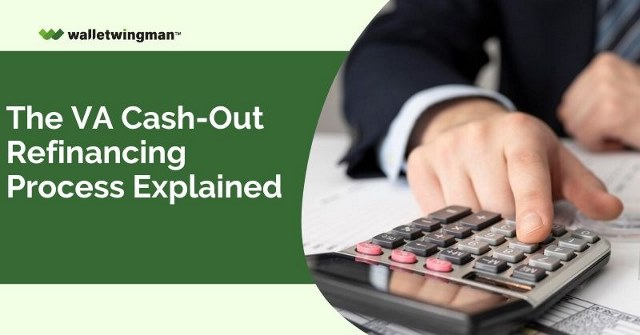
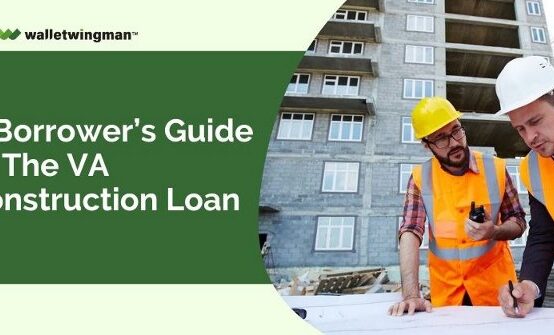 A Borrower’s Guide to the VA Construction Loan
A Borrower’s Guide to the VA Construction Loan  How to Buy a Condo Unit with a VA Mortgage Loan
How to Buy a Condo Unit with a VA Mortgage Loan 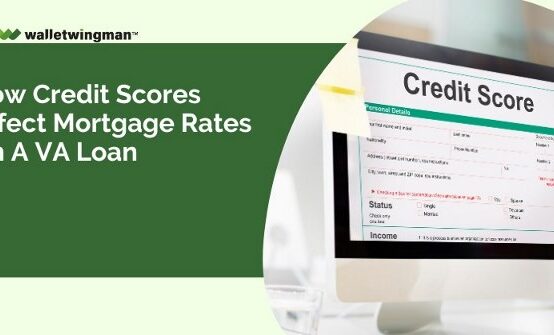 How Credit Scores Affect Mortgage Rates on a VA Loan
How Credit Scores Affect Mortgage Rates on a VA Loan 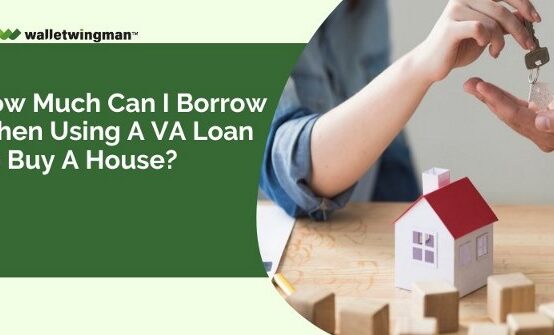 How Much Can I Borrow When Using a VA Loan to Buy a House?
How Much Can I Borrow When Using a VA Loan to Buy a House? 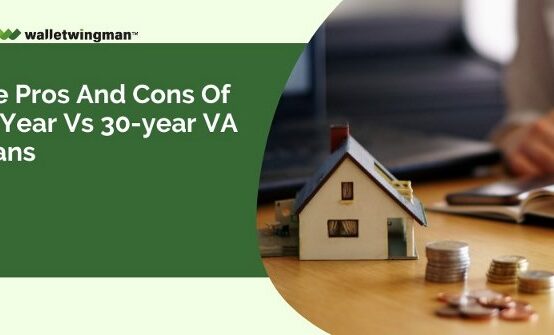 The Pros and Cons of 15-Year vs 30-year VA loans
The Pros and Cons of 15-Year vs 30-year VA loans 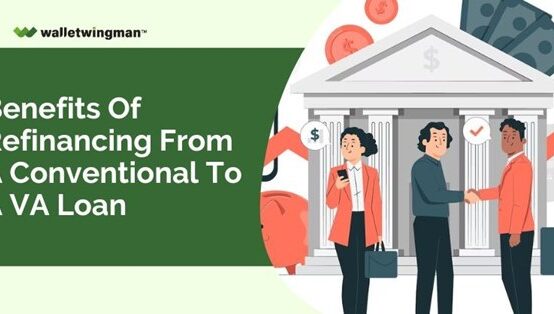 Benefits of Refinancing From a Conventional to a VA Loan
Benefits of Refinancing From a Conventional to a VA Loan 